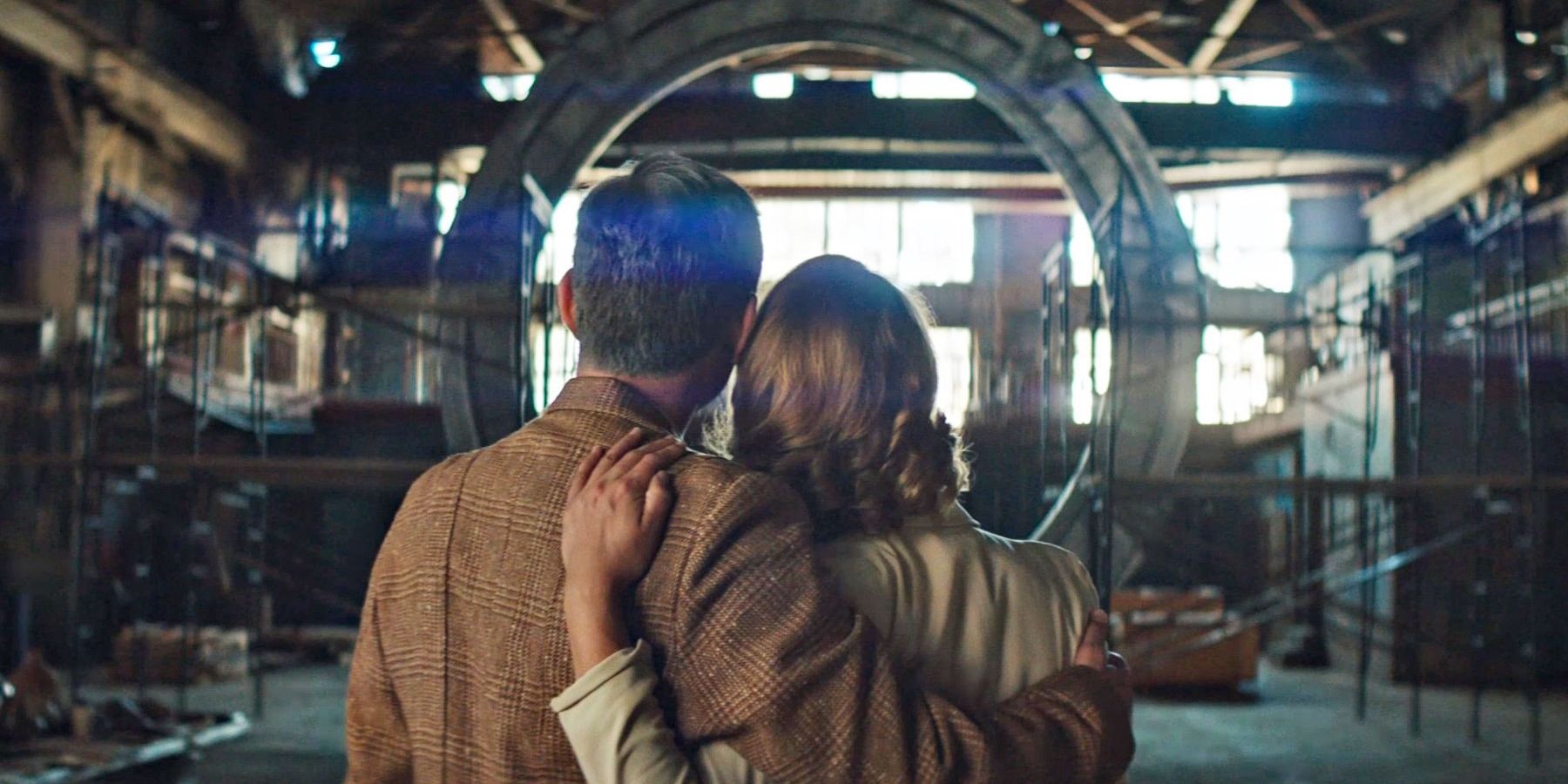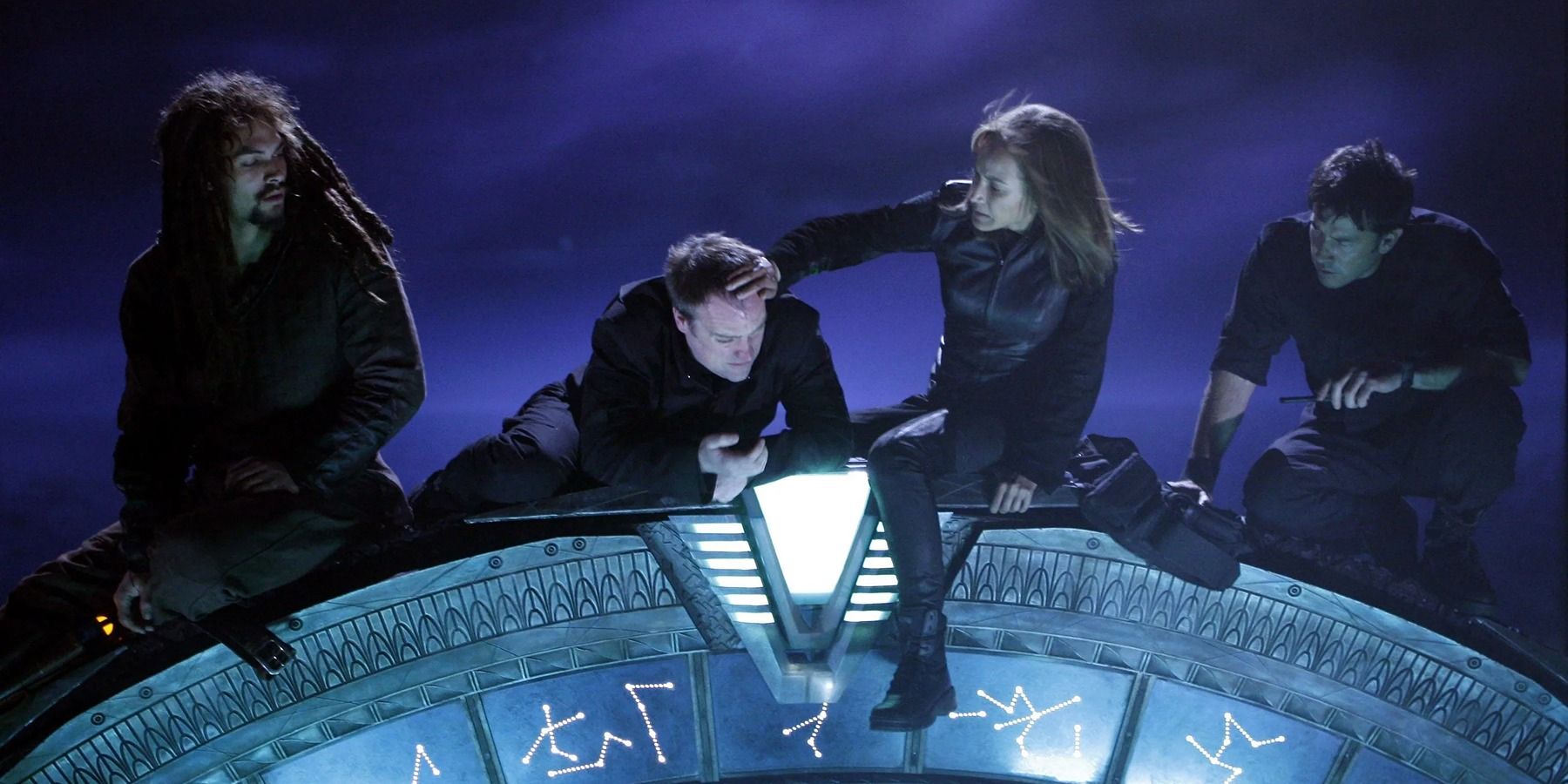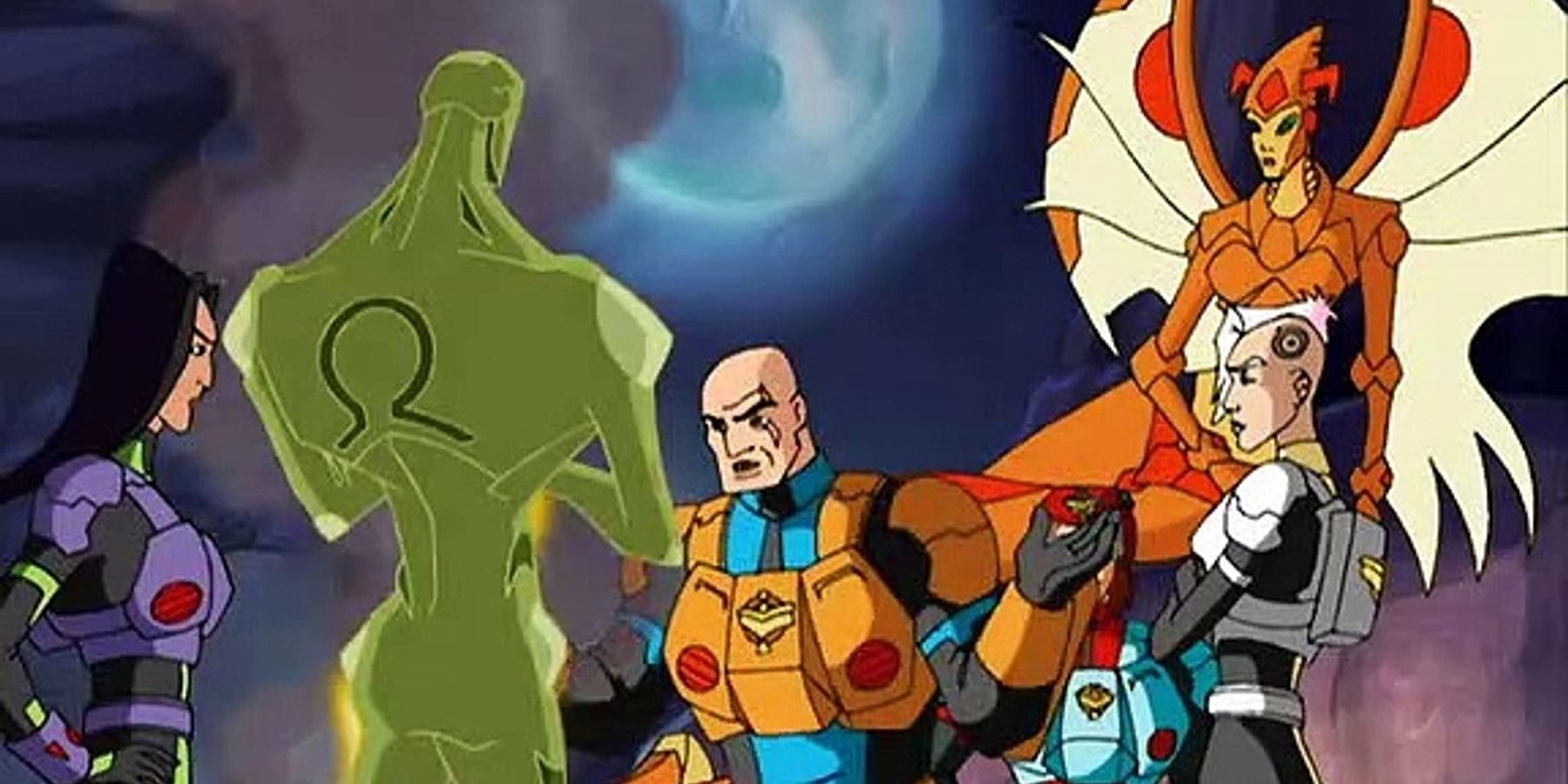Much like any beloved franchise, the Stargate universe has expanded over the many years it has been available for public consumption. The science-fiction gem began as the 1994 movie Stargate, a Roland Emmerich project that was an unexpected success at the box office. Canceled sequels transitioned into the pilot for a new TV series, and Stargate: SG-1 was born. The show has since spawned multiple spinoffs, direct-to-video movies, web-series, games, and books — but what can be considered canonical to the franchise's story?
Once any TV show becomes popular, the idea arises to make more of it — even another version, to capitalize upon the achievements of the first one. In this sense, Stargate followed a similar pattern to one set years earlier by Gene Roddenberry’s Star Trek. Roddenberry's legendary franchise began in 1966, and has had a TV series or movie saga in production every decade since then. Stargate did not have the same staying power as Star Trek, but it has still garnered a devoted fan base and multiple offshoots of the source material. Many of these offshoots have earned their rightful place in the canon of the universe, though with so much to wade through, their exact status can be called into question.
The Stargate universe had its big bang with the 1994 movie, which stars Kurt Russell as Colonel Jack O’Neil (whose name had one ‘L’ at this time), and James Spader as Dr. Daniel Jackson. Spader’s Dr. Jackson sets off the space-bending adventure by correctly translating an ancient text, leading to an open wormhole in a pyramid, which in turn leads to a slave revolution on another planet. The foundation of the universe’s science is established with this movie, as are the key characters of Jack and Daniel. The iconic Stargate itself is proven operational, analyzed, romanticized, and named, and the possibilities of the extra-terrestrial piece of technology are made clear. The film is irreplaceable within the Stargate canon, even if its finer details are considered malleable.
While the basis for much of the lore of the Stargate universe can be found in its original theatrical movie, that lore was given depth and made personal in Stargate SG-1. The first ‘sequel’ to the movie was a series that lasted ten years, which populated the galaxies of the franchise with civilizations and people that won the hearts of its audience.
In this show, Kurt Russell’s stoic colonel is replaced by Richard Dean Anderson, while James Spader’s sneezy doctor was replaced by Michael Shanks. Joining them were Captain Samantha Carter, a physics genius played by Amanda Tapping; and Teal’c, a reformed follower of the tyrannical alien god Apophis, played by Christopher Judge. Their team, known as SG-1, spent a decade exploring the universe by use of the Stargate, and encountered numerous allies and enemies as they did so. The threat of the Goa’uld (the race of the movie’s antagonist, Ra) defined the series, and set a high standard for the stories to follow. The show continued in two direct-to-video movies, Stargate: The Ark of Truth (2008), and Stargate: Continuum (2009).
Stargate SG-1 holds a place of honor in the canon, but not far behind it are its immediate successors, Stargate Atlantis and Stargate Universe. The former had its premiere alongside Season 8 of Stargate SG-1, and aligned with the events of the Season 7 finale; namely, the discovery of a way to access the Pegasus galaxy and a repository of the Ancients, the race of aliens who designed the Stargate network. Stargate Atlantis took place in a version of the eponymous mystical city, and featured a new cast of air force captains, scientists and alien consultants. It gained much the same popularity as Stargate SG-1, lasting for five seasons and paving the way for other spinoffs.
Much like Stargate Atlantis, Stargate Universe built on the lore created by its parent TV series. The latter was set in an Ancient ship called the Destiny, and depicted the technological discoveries and galactic exploration of a crew stranded far from Earth. This show is notable for its departure from traditionally episodic form of storytelling, which defined previous Stargate series, and its more dramatic style. It lasted only two seasons, and resulted in the cancelation of promised Stargate Atlantis movies. However, its story continued the expansion of the Stargate universe. The show was the final officially licensed TV production in the franchise.
Stargate was briefly revived in 2018 with the release of Stargate Origins, a prequel web-series that was based on Catherine Langford, Daniel Jackson’s mentor and one of the people present when the first Earth Stargate was discovered. The series features ten short-form episodes, and follows Langford as she travels through the Stargate to rescue her father. The show contradicts some of the history of Langford, as established in Stargate SG-1. However, as it is an official release, it is considered a part of the universe’s canon. The series was released on Stargate Command, a new digital platform by MGM, but received no more seasons.
The franchise has dabbled in animation, as with the single-season series Stargate Infinity, which lasted from 2002 to 2003. Stargate SG-1 creator Brad Wright has stated that the animated series is not a part of the universe’s official canon, which also seems to be the case for multiple canceled games. Similarly, the numerous books published under the franchise’s name are officially licensed, but they are not considered a part of the established TV series and movie canon. So far, only on-screen and live action works are added to the franchise bible, which makes following the story of the Stargates much easier for fans.
Stargate has a wealth of material for audiences to enjoy, beginning with the original blockbuster movie, and finishing with the easily digestible Stargate Origins. The shows have drama, comedy, sci-fi thrills, and action galore, making them the best part of the franchise. There are plenty of spinoff projects, but what made the universe special was the care put into the official movies and TV series. If there is an interest in deciphering the timeline of the story, it’s an easy path to follow.





